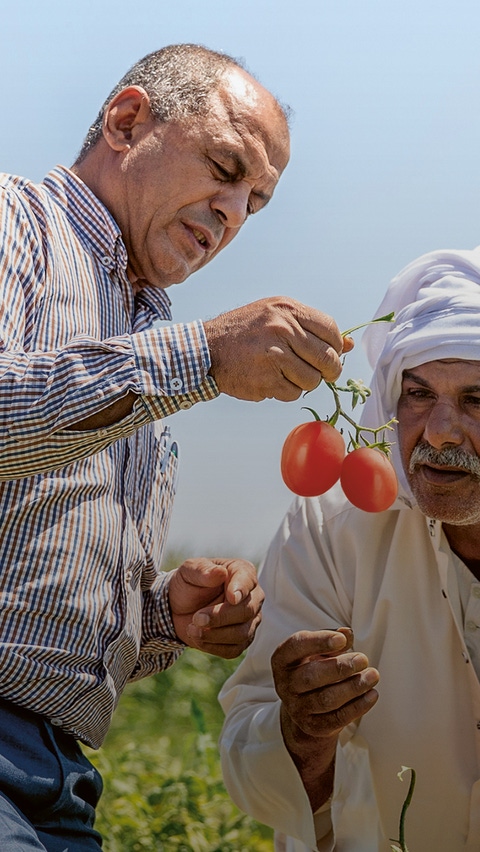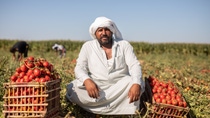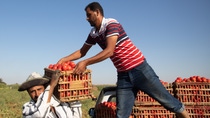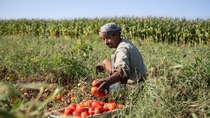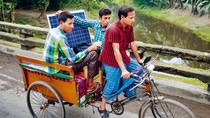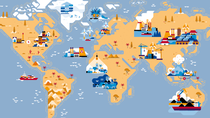Magazine
Support on the ground
Big commercial farmers use many technologies to improve yields, sustainability and profits. In Egypt, BASF is bringing these solutions to small and mid-scale farmers, improving their livelihoods and self-reliance.
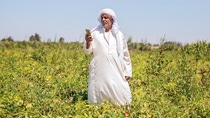
“I have been a farmer for 21 years. I grow tomatoes and other vegetables on 12 feddans* of land,” says Shaaban Talha, a farmer in the Kafr el Sheikh region north of Cairo, Egypt. “I face many challenges. My crops can be affected by root rot, powdery mildew, blights and leafminers. But in this last year the biggest problem has been low prices. This has meant large losses for me and other farms in the area.”
* 5 hectares
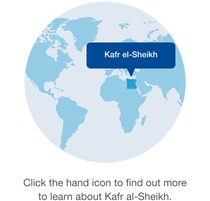
Kafr el-Sheikh
Egypt
Kafr el-Sheikh is a governorate in Egypt with 3,362,185 inhabitants and is located in the northern Nile Delta.
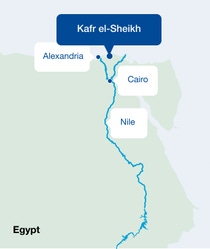

The Ardena project was launched in Egypt after three years of development. We are currently focusing on scale-up in Algeria and Morocco. As part of BASF’s Starting Ventures, it aims to develop sustainable business solutions and empower people with low incomes to achieve better quality of life at the same time as expanding the market for BASF’s products and building strong business partnerships.”
Many farmers in Egypt, like Talha, lack access to technologies such as satellite communication, the internet, big data and artificial intelligence – and the information larger farming businesses use to predict weather conditions so they can take preventive action to protect their crops. This not only puts these farmers at a disadvantage, but can be a disaster when your family’s livelihood depends on having the right information. BASF is working to change that.
Launched in 2020 by the BASF team in Egypt, Ardena is a disease alert service delivered by text message to the cell phones of registered farmers. It connects the farmer with a sophisticated early disease warning system using satellite technology and artificial intelligence to provide real-time, tailor-made recommendations that help to increase their productivity.
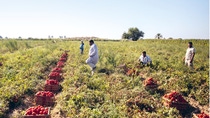
Smallholder farmers are scattered across remote regions, making it difficult to reach them. There is also a high level of illiteracy. They need someone to talk to about their problems, to warn them of changing conditions and offer sound advice. Our agronomers provide that support, including advice on the safe use of crop protection products. At Mobile Agricultural Clinics, it’s a one-to-one service. We take time to understand their problems.”
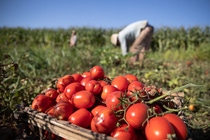
Some 80 percent of Egypt’s arable land is farmed by smallholder farmers. Helping them tackle disease not only improves livelihoods, it also contributes to food security. Ardena, which means “our land”, gives farmers information about how to apply crop protection products safely and how to use them more precisely to achieve better yield. It works whether the farmer has a basic mobile phone or a smartphone. The alert service is also available to local retailers – a vital link in communication.
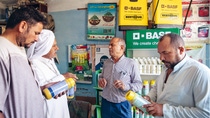
Smallholder farmers are open to innovation. Their livelihood depends on it because every year is make or break. Our services use satellite technology and combine imaging of the fields with weather data to predict disease susceptibility. This is delivered to the farmer via text message with advice on steps they can take, including products, the importance of personal protective equipment, and nearest retailers.”
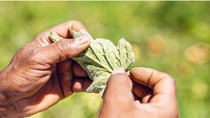
Talha’s retailer is Mohamed Shams. From his shop in Bangar el Sokar village he serves 150 farmers across the region. “One of the biggest problems farmers face in this area is fruit drop – when fruit is shed from the plant before it is fully ripe,” says Shams. With Ardena, he is forewarned of fungal diseases like early and late blight so that he can stock the appropriate crop protection products and be ready to answer farmers’ questions.
The information flow to the farmers is also supported by Mobile Agricultural Clinics. At the clinics, agronomists from BASF meet farmers face to face near their farms to discuss their problems in person. There are up to 25 clinics a year, covering 14 areas of the country and reaching 5,000 farmers to date. Though the pandemic made such events impossible in 2020, they will resume when it is safe for them to do so.
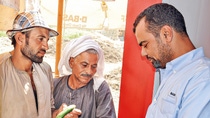
Together, Ardena and the Mobile Agricultural Clinics help to reduce uncertainty for farmers like Talha. “The clinic initiative has a very positive impact because it reaches us close to our lands,” he says. “I got first-hand guidance about the blight problem I was facing. It saved me time and effort.”
